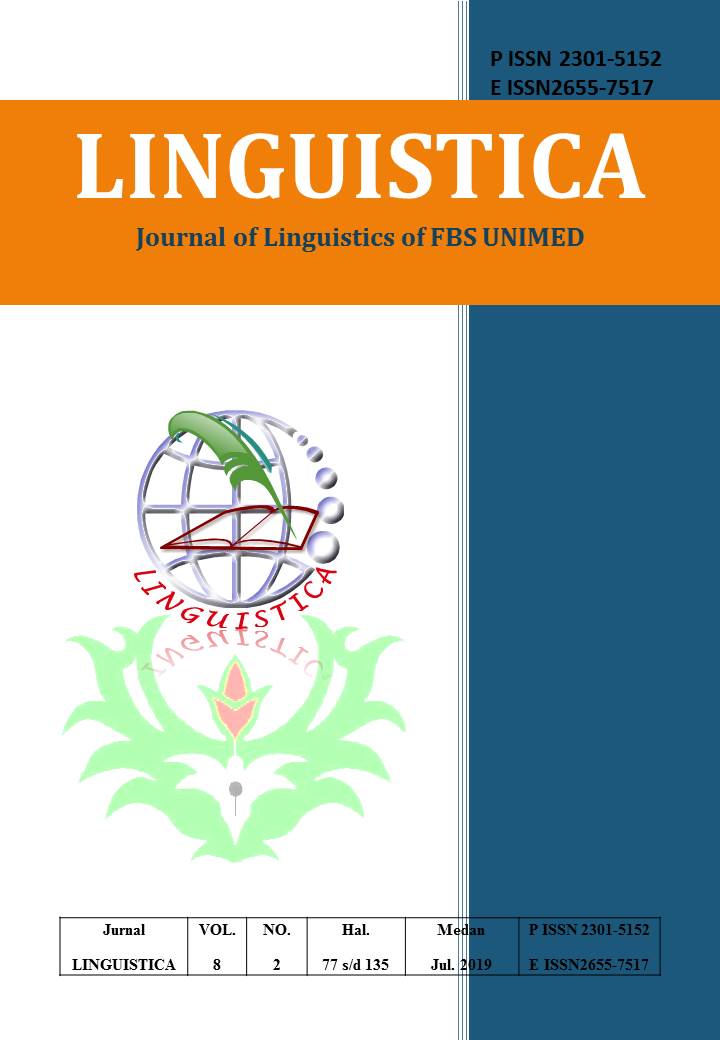POLITENESS IN USING SIMALUNGUNESE PERSONAL SUBJECT PRONOUNS
DOI:
https://doi.org/10.24114/jalu.v8i2.13864Abstract
This study aimed to reveal and explain politeness in using simalungunese personal subject pronouns by trying to find out the type mostly used, the way and the reason of people in Galang City using it. This study was qualitatively conducted that taken 35 people of Galang City as respondent/participant. The data was collected by using questionnaire paper. The findings of this study showed that Simalungunese Personal Subject Pronouns people in Galang City mostly used were First Personal Subject Pronouns Ahu/au with 130 times chosen (46%), Second Personal Subject Pronouns Ham/Handian/Nassiam with 159 times chosen (57%), Third Personal Subject Pronouns Ia/Sidea with 128 times chosen (46%). The ways of people in Galang City using Simalungunese Personal Subject determine by gender, Situation, Age, and Familiarity. The reason of people in Galang city using Simalungunese personal subject pronouns were making no distance/gap, adapting the situation, knowing the rule of communication, learning from family. The findings of this study revealed that four parameters of politeness influenced chosen of pronouns, and the use of Simalungunese Personal Subject pronouns itself influenced the level of politeness. Keywords : Politeness , Simalungunese , Personal PronounsDownloads
Published
2019-07-04
Issue
Section
Articles
License
Copyright (c) 2019 Evi Irawanti Saragih, Sri Minda Murni, Sumarsih Sumarsih

This work is licensed under a Creative Commons Attribution-ShareAlike 4.0 International License.
Authors who publish with this journal agree to the following terms:
- Authors retain copyright and grant the journal the right of first publication with the work simultaneously licensed under a Creative Commons Attribution License that allows others to share the work with an acknowledgment of the work's authorship and initial publication in this journal.
- Authors are able to enter into separate, additional contractual arrangements for the non-exclusive distribution of the journal's published version of the work (e.g., post it to an institutional repository or publish it in a book), with an acknowledgment of its initial publication in this journal.
- Authors are permitted and encouraged to post their work online (e.g., in institutional repositories or on their website) prior to and during the submission process, as it can lead to productive exchanges, as well as earlier and greater citation of published work (See The Effect of Open Access).
- This work is licensed under a Creative Commons Attribution-ShareAlike 4.0 International License.

